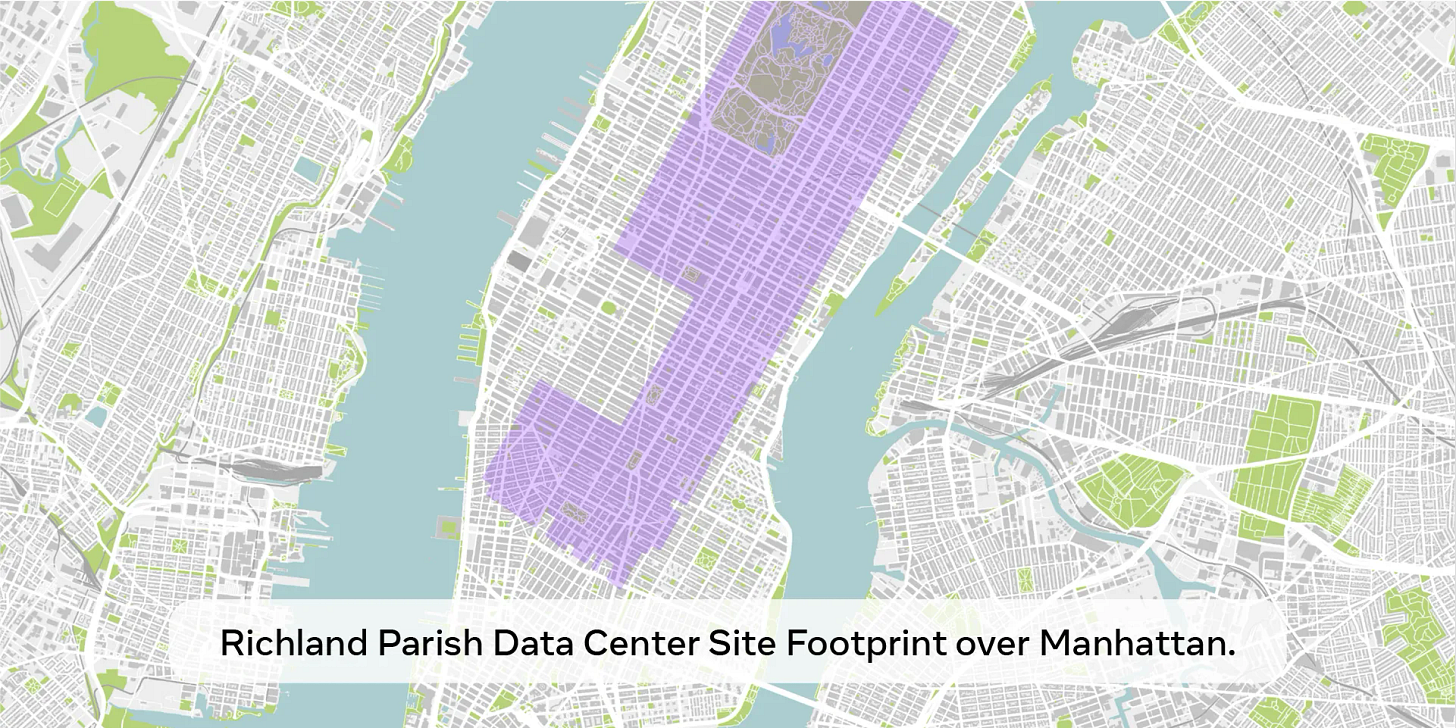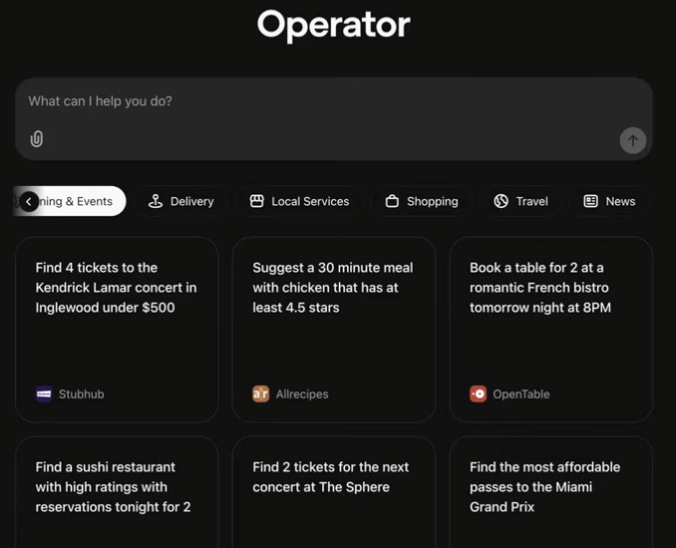el producto #420 🚀
OpenAI and Perplexity launch AI agents, OpenAI’s $500B Stargate project, When to invest in paid marketing, The state of tech tools in 2025, AI-assisted work & more
Hi folks 👋
Welcome to a new edition of el producto
If you’re building or scaling products, there’s a lot to chew on: OpenAI’s $500B Stargate project is reshaping AI infrastructure, Meta’s investing billions into its future, and tools like AutoGen and Perplexity are pushing the boundaries of what AI agents can do. From killer insights on when to invest in paid marketing to the state of tech tools in 2025, we’ve got you covered
Let’s dive in and see how these updates can supercharge your product game!
🎰 The week in figures
$500B: OpenAI made a $500B deal with SoftBank and Oracle to build a massive US AI infrastructure called project Stargate, starting with a $100B Texas data center
$65B: In a series of posts on Threads, Mark Zuckerberg pledged some $60B to $65B in capital expenditures this year to support his company’s AI work. After touting a future 2GW datacenter, Zuck showed using a map how large the new facility would be compared to Manhattan
$15.3B: data analytics platform Databricks has closed a $10B Series J + $5.25B debt financing at a $62B valuation. Meta joins the round and will act as a ‘Strategic Partner’ after Databricks partnered with them “to give feedback” on how enterprises were using its LLMs
$1B: Anthropic has raised another $1B from Google, while it still looks for $2B more from VCs. Google previously put $1B into the company
18.9M: Netflix added 18.91M new paid subscribers, bringing their total global streaming paid memberships to 301.63M. This represents the biggest quarter of net additions in Netflix’s history. Europe, Middle East, and Africa are the company’s biggest regions. Their ad supported strategy is working too: In Q4 2024, the ads plan accounted for over 55% of sign-ups in countries where it’s available
-95%: DeepSeek, the Chinese open-source R1 ‘reinforcement learning’ model matches OpenAI o1 reasoning model at 95% less cost
📰 What’s going on
OpenAI and Microsoft break ties. Following the announcement of the joint venture between OpenAI, Softbank, and Oracle (called Stargate, see above), OpenAI and Microsoft have jointly announced that Microsoft will no longer be the “exclusive provider” of compute capacity to OpenAI—to develop, train, and run their AI models—clearing the way for OpenAI to work with other compute providers (coincidentally, including Oracle)
Microsoft has released the latest version of its agentic framework, AutoGen 0.4. Key points:
Asynchronous events: this means agents can work on tasks concurrently without having to wait for other agents to complete theirs. E.g. one agent could be making API calls to collect data while another one parses it and a third creates a report
Modular Design: the framework offers pluggable components, including custom agents, tools, memory, and model
Community extensions: AutoGen v0.4 includes an ecosystem of extensions, including advanced model clients, multi-agent teams, and tools for agentic workflows
Improvements to the AutoGen Studio: the low-code interface enables rapid prototyping of AI agents including the release of a drag and drop interface which allows users to build agent teams
OpenAI has finally announced its AI agent, Operator (which can take control of a web browser and perform multi-step tasks, independently), as a research preview for US-based ChatGPT Pro users, with plans to “integrate these capabilities into ChatGPT” and release it to Plus, Team, and Enterprise users in other countries “soon.” Key points:
Operator can “self-correct” (passing it to the user if it gets stuck), “see” via screenshots and interact (ie. click, type, move the cursor) with a browser, allowing it to shop, make reservations, and calculate refunds
It mitigates misuse by blocking high-risk/harmful tasks and blacklisted sites, asking for confirmation when sensitive information is required, and its interactions are reviewed, in real-time, by automated safety checkers
OpenAI is collaborating with companies like DoorDash, eBay, Instacart, and Uber to make sure Operator respects their service agreements, and “addresses real-world needs while respecting established norms”
Watch a demo here
Perplexity has also launched an AI agent/assistant (specifically for Android mobile devices) that can perform tasks and “see” what’s on your screen, marking a “transition for Perplexity from an answer engine to a natively integrated assistant.” Key points:
Because it’s powered by Perplexity’s AI-powered search engine, the assistant can answer questions, draft emails, set reminders, book dinners, and search for songs, and can also use the device's camera to “see”
It works with apps like Spotify, YouTube, and Uber, plus email, messaging, and clock apps, but doesn’t support Slack or Reddit yet, although Perplexity has stated that it’s “continuing to add support for more apps”
Although it’s “just a starting point,” the assistant is available (for nothing) for Perplexity users across 15 languages, including English, Spanish, French, German, Japanese, Korean, and Hindi
Perplexity has released a new API called Sonar that allows product teams to use Perplexity to power the search functionality in their products. Perplexity says that Zoom, along with other companies, is already using Sonar to power an AI assistant for its video conferencing platform. In Zoom’s case, Sonar enhances their AI chatbot to give real-time answers with citations without requiring a user to leave the window
On a completely different and unexpected direction, Perplexity has made a bid to merge with TikTok US, allowing ByteDance investors to retain stakes in the new combined entity
Zapier has launched its own AI agent builder, too. The agents work with over 7,000 of the existing integrations that Zapier supports across products like Notion, Jira, Asana and Google Docs
Anthropic teases new features: Dario Amodei, CEO of Anthropic, presented a “two-way” voice feature for its Chatbot, Claude, in addition to increased memory about users and past conversations
Zoom announced the launch of Zoom Cobrowse, a new SDK that allows users to navigate the web together. It also allows users to annotate each other’s screens - very helpful for when you need to debug something or point a user in the right direction
The new Samsung Galaxy S25 series has Gemini AI integrations and contextual awareness features. The Ultra is even bigger than its predecessor
Revolut introduced an instant-access savings account offering a market-leading interest rate of 5%, further diversifying its banking services, and launched in-app calls to help customers identify and report phone call scams, enhancing fraud prevention efforts
📚 Good reads
6 AI agents to automate your manual work. This week we’re sharing progress on AI agents by some of the big GenAI players, but there are already a bunch of tools that can help you put AI agents to work fast, and often even for free. Check out these examples by Mohit Vaswani
The shift from self-sufficiency to AI-assisted work, by Sarah Tavel. Google has trained individuals to be effective information seekers and synthesizers. The transition to leveraging AI partially involves unlearning this ingrained self-sufficiency, and embracing personalization. This isn’t about moving queries off of Google into ChatGPT - it’s also a shift in the kind of problems we can tackle, and how we’d approach them. Complement with this practical guide by Aakash Gupta on when and how to use AI as a PM
When to invest in paid marketing, and how to avoid burning cash. It’s not uncommon for startups to start putting money on paid marketing too early, often for little or no return (unfortunately, done that). Elena Verna shares practical advice to help startups find the right timing for paid marketing
The state of tech tools in 2025. Noam Segal shares interesting insights from 6,500 tech professionals on their favorite and least favorite tools. ChatGPT leads with 90% usage among respondents, outpacing the likes of Gmail and Slack. Jira, while still popular, tops the list of tools users wish to replace (I feel you, friends)
That’s a wrap for this week’s el producto! 🌟
I’d love to hear your thoughts—what stood out to you, and how are you thinking about integrating these insights into your product strategy? Reply to this email or drop a comment on Substack to share your take. And if you found this valuable, forward it to a fellow PM or product enthusiast who’d enjoy the read
See you next week! 👋
Angel








